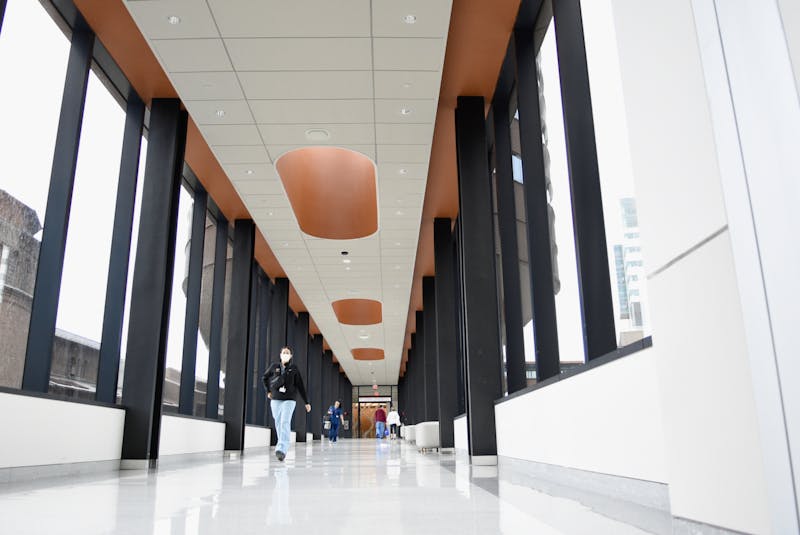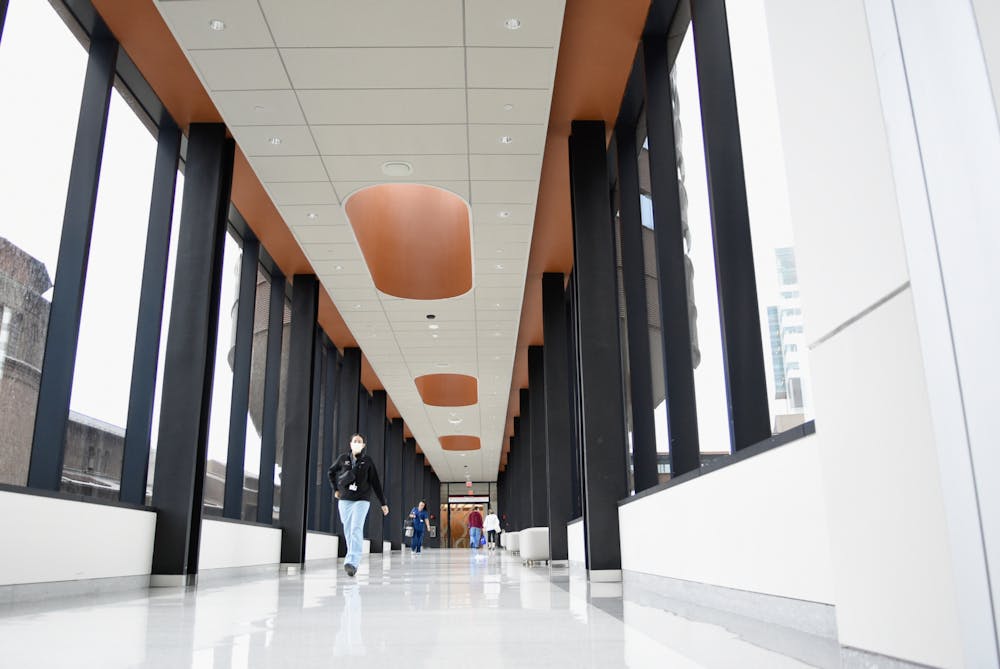Penn Medicine unveiled their new mobile mammography van on July 13.
Credit: Uma Mukhopadhyay
Penn Medicine launched a mobile mammography clinic during a local community health fair last month to improve early cancer detection and patients’ access to care.
The mobile unit — launched on July 13 — was designed to increase the accessibility of breast cancer screening among women in low-income and rural areas. The van also screens for lung cancer, diabetes, and other health concerns, offering “free take-home” kits that patients can use on their own.
Perelman School of Medicine professor Brian Englander — who specializes in radiology — first imagined the project in 2018 after researching strategies for expanding access to medicine. In an interview with The Daily Pennsylvanian, Englander described the van as an example of “indigenous innovation,” a process he coined for bringing care to patients directly.
“[We] often take for granted having … access when there are so many wonderful hospitals and institutions that provide it,” Englander added.
Englander drew inspiration from the rollout of the COVID-19 vaccine, which he said initially attempted to “set up centralized care” sites before turning to mobile clinics, “churches, or [other] institutions.”
After an initial pop-up event in North Philadelphia, Englander recognized “the impact and the demand” of mobile health care, which motivated him “to really push forward with making [the clinic] a reality.”
Englander described the clinic’s primary audience as “people who are underserved [and] underinsured,” noting the need for “basic screening [and] preventative services for women of color, women who don’t speak English, new members of the United States community, immigrants, [and] rural populations that just don’t have access.”
In light of this, people using the mobile mammogram are not required to have health insurance to participate.
“We will charge their insurance, but [for] patients who don’t have insurance, we will provide free mammography,” Englander said.
“If an abnormal result is found on a mammogram or any other screening test, the Penn Medicine team will help connect the individual to appropriate resources and follow-up care,” Penn Med’s announcement explained.
The clinic’s current success relies on both industry and community partners, including medical technology company Siemens Healthineers, along with the Philadelphia-based Church of Christian Compassion.
Linda Nunes, who serves as the vice chair of community health for the Medical School’s radiology department, described the support for the service across Philadelphia as “wonderful.”
“[It’s] not just the community members who become our patients, but the volunteers from the hospital and our … industry partners,” Nunes said in an interview with the DP. “Everyone really feels good about what w’’ve been able to accomplish.”
Nunes characterized the clinic as part of Penn Med’s broader effort to educate its community members and promote regular cancer screenings.
“In addition to actually screening individuals, I think we really have been able to impress upon them the importance of screening and mold their mindset towards getting [a] screening,” she said. “For example, on the day of the fair, we actually ended up with a waitlist for more individuals wanting to be screened, including some people who are like ‘I get my screening mammogram here every year now.’”
Sign up for our newsletter
Get our newsletter, DP Daybreak, delivered to your inbox every weekday morning.
Nunes also emphasized the significance of community health fairs as a means of raising awareness. Since the clinic’s debut in West Philadelphia, the team has “broaden[ed] [their] capability to reach a wider distribution of areas” by participating in other fairs throughout the city.
As the project moves forward, Nunes noted a plan to “maximize [the] impact” of the clinic by collaborating with other “community groups, whether they’re churches, community centers, [or] health centers.” The team has also attempted to strengthen its recruitment process, hire on-site translators, and increase its operating hours.
Englander similarly mentioned his hope for “expanding” the current effort “to additional vans, additional locations, and additional concepts of providing … care on the road.”
The Daily Pennsylvanian is an independent, student-run newspaper. Please consider making a donation to support the coverage that shapes the University. Your generosity ensures a future of strong journalism at Penn.

